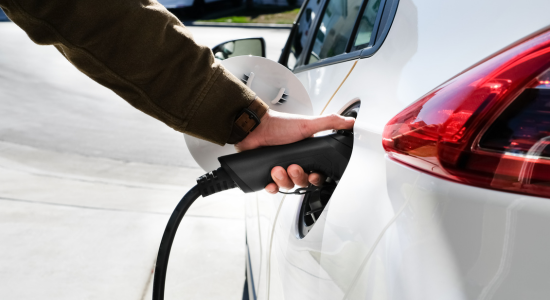Road tax, formally known as Vehicle Excise Duty (VED), is an annual charge imposed on UK registered vehicles. Historically VED rates have been determined based on factors such as engine size and CO₂ emissions, with lower rates assigned to more environmentally friendly vehicles.
Why is road tax increasing?
The upcoming increases in road tax are designed to support the UK's environmental objectives, particularly to achieve net-zero emissions by 2050. By adjusting tax rates, the government aims to incentivise the purchase of electric and low-emission vehicles, thereby reducing the nation's overall carbon footprint.
From 1 April 2025, registered keepers of electric, zero or low emission cars, vans and motorcycles will need to pay vehicle tax in the same way as registered keepers of petrol and diesel vehicles. This change will apply to both new and existing vehicles.
This new measure removes band A under the existing VED system which is currently £0. Vehicles in this band will be required to move to the first band where a rate becomes payable.

How the changes will affect your vehicle
Electric, zero or low emission cars registered on or after 1 April 2025
You will need to pay the lowest first year rate of vehicle tax set at £10 from 1 April 2025. From the second tax payment onwards, you will pay the standard rate. This is currently £195.
Electric, zero or low emission cars registered between 1 April 2017 and 31 March 2025
You will pay the standard rate. This is currently £195.
Electric, zero or low emission cars registered between 1 March 2001 and 31 March 2017
These vehicles will move to the first band that has a VED value. This is currently £20.
Hybrid and alternatively fuel vehicles (AFVs)
The £10 annual discount for hybrid and AFVs will be removed, and the rate you will pay will depend on when the vehicle was first registered. If the vehicle was:
- registered before 1 April 2017 - this rate will depend on the vehicle’s CO2 emissions (check the current rates for these vehicles)
- registered on or after 1 April 2017 - you will pay the standard rate (This is currently £195.)
Electric vans
Most electric vans will move to the standard annual rate for light goods vehicles. Check the current rates for these vehicles.
Electric motorcycles
Electric motorcycles and tricycles will move to the annual rate for the smallest engine size. Check the current rates for these vehicles.
What about higher emission, petrol and diesel cars?
Cars with higher emissions registered after 1st April 2025 will see their first-year VED double from £2,745 to £5,490.
Beware of additional luxury car tax
You will also need to be aware of the new “expensive car supplement”, also known as “luxury car tax”, as this is bringing in even higher charges for new electric and zero-emission vehicles. This means that any new electric and zero emission vehicle registered on or after 1 April 2025 with the list price exceeding £40,000 will attract the standard rate, plus the expensive car supplement for the first 5 years from the start of the second licence, which is £410 per year.
Previously, only petrol, diesel and hybrid cars had to pay this fee.

What can you do to avoid the increase?
- Take delivery of your new car before April 2025.
Getting your new car before the increase allows you to benefit from the current, lower road tax rates, particularly advantageous if you are considering a higher-emission vehicle which faces the biggest increase.
We have a range of vehicles in stock or with shorter order times that can be delivered before the end of March. Enquire about stock cars with our team here.
- Consider electric or low-emission vehicles
While EVs will begin to incur VED from April 2025, their rates remain significantly lower compared to high-emission vehicles. Transitioning to an electric or low-emission vehicle not only reduces your tax burden but also contributes to environmental sustainability.
Some of our most popular EV and low emission vehicles include:
Electric cars including:
Click the links above or search for your new electric car here and select “Electric” as the fuel type
Low emission hybrid cars including:
Click the links above or search for your new hybrid car here and select “Hybrid” as the fuel type.
If you need some advice to help find the right car for you, please contact our team using the enquiry form here, or call 01522 814010.